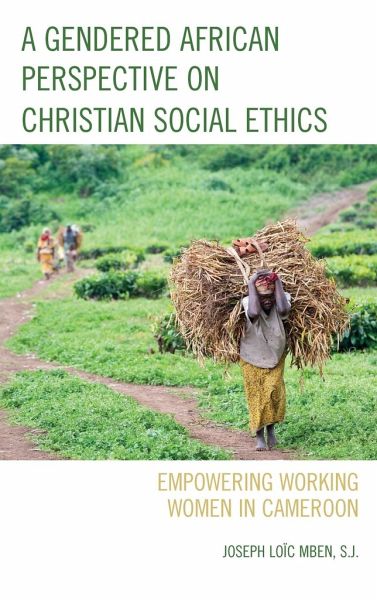
Gendered African Perspective on Christian Social Ethics
Empowering Working Women in Cameroon
Versandkostenfrei!
Versandfertig in 1-2 Wochen
112,99 €
inkl. MwSt.
Weitere Ausgaben:

PAYBACK Punkte
56 °P sammeln!
Combining Catholic social teaching, feminist and African liberation theology, and the social sciences, Joseph Loïc Mben, SJ, develops a contextual gendered African Christian social ethic that addresses the oppression and marginalization of working women in Sub-Saharan Africa. He focuses primarily on African women from working and poor classes living in either urban or rural settings, particularly in Cameroon, and thus shows the necessity of inflecting Catholic social teaching along the differential of gender.














